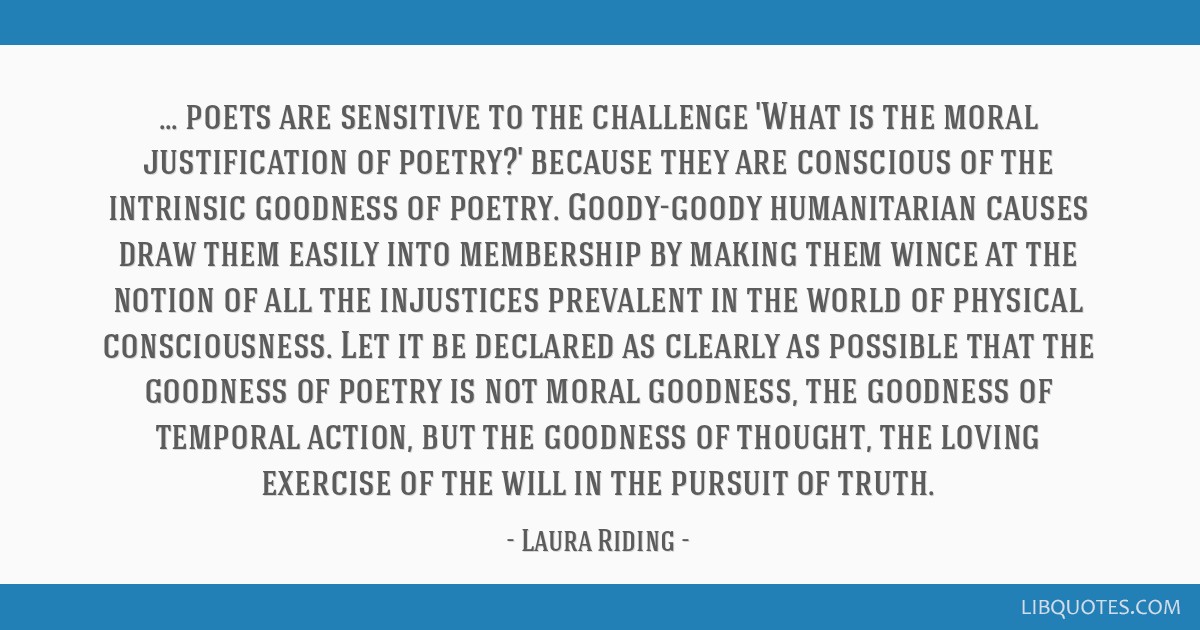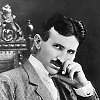... poets are sensitive to the challenge 'What is the moral justification of poetry?' because they are conscious of the intrinsic goodness of poetry. Goody-goody humanitarian causes draw them easily into membership by making them wince at the notion of all the injustices prevalent in the world of physical consciousness. Let it be declared as clearly as possible that the goodness of poetry is not moral goodness, the goodness of temporal action, but the goodness of thought, the loving exercise of the will in the pursuit of truth.
Laura Riding and Robert Graves from "Poetry and Politics", reprinted in The Common Asphodel (London: Hamish Hamilton, 1949)























